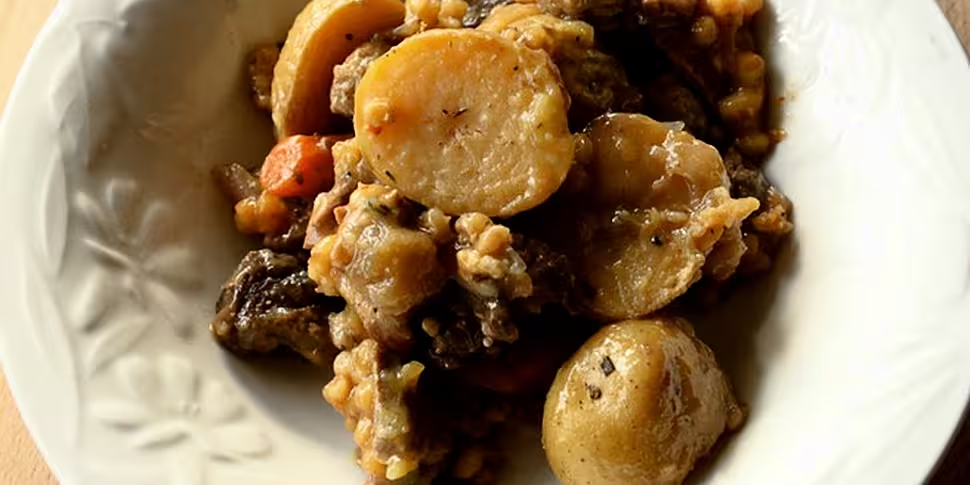Just when exactly the potato made its way across the Atlantic Ocean and settled into its adopted home of Ireland is a matter of much debate. The most likely story of all is that it was Sir Walter Raleigh himself who spotted the spuddy potential of Ireland, given that he owned estates in county Cork and was the mayor of Youghal in 1588 and 1599 – no wonder they were such an integral part of Skibbereen’s medal haul in Rio. Regardless, the Irish took to the potato like no other vegetable before or after so that by the 17th century it had replaced grains and cereals as the key component of our diet.
The reason has less to do with a unique appreciation of the taste of the spud – though traditionally we prefer a potato with a higher level of dry matter than our European cousins – than equipment. In 17th-century Ireland, even the most modest of kitchens had the necessary tools to effectively prepare potatoes in a number of different ways. More often than not, the scrubbed tubers were simply boiled in large iron cauldrons or squat pots standing on three stubby legs balanced on the kitchen fire. Drained in wicker baskets and dumped in between the ravenous families (the average Irish labourer at the time could be expected to polish off between three and six kilos of potatoes per day), the hungry learned to peel theirs quickly, leaving those slower to unwrap their spuds with fewer to eat.
Overreliance, of course, proved fatal when the fungal wafts of Phytophthora infestans made their way from Belgium to Ireland in the mid-1840s, destroying crops entirely and leaving Irish families with nothing but oozing black lumps growing in the ground. The lesson Ireland taught the world was the necessity to diversify crops, and it was a lesson hard learned.

[Pixabay]
Irish stew is ostensibly the national dish of the country, but one which comes with a number of grains of salt. The Irish cannot lay claim to the invention of stewing, which can be traced back as far as the oldest cookbook in existence. Both lamb, the meat which Irish stew is predominantly made with (although beef is common), and fish stews appear in the Apicius, the oldest surviving collection of Roman recipes, believed to have been compiled in the late 4th or 5th centuries AD and covering everything from good housekeeping to ingredients. But there is evidence dating back 8,000 years that stewing as a form of meal preparation has been an essential part of anthropology.
The first written reference to Irish stew comes from a poem by Byron in 1814 called The Devil’s Drive:
The Devil returned to Hell by two,
And he stay'd at home till five,
When he dined on some homicides done in ragoût,
With a rebel or so in an Irish stew--
And sausages made of a selfslain Jew,
And bethought himself what next to do--
"And," quoth he, "I'll take a Drive.
Likely in existence for a couple of centuries before Byron sank his literary teeth into it, purists marinating that the true Irish stew is made by heating neck mutton chops (or goat kid), potatoes, onions and water. Over time, root vegetables like carrots and turnips have found their way into the pot, and pearl barley is reportedly a common addition in southern kitchens, but the purists would argue they detract from the warm flavour of the stew.
Mutton trumps beef for two reasons; before the Norman invasion of Ireland, cattle was a symbol of wealth, making beef a very uncommon foodstuff on Irish plates, with only lame cows or ones beyond their milking days butchered for their meat. Sheep also provided an economic incentive to be kept alive, providing both milk and wool, meaning only the non-viable ewes ended up inside a pot, slowing boiling down to something approaching tender over a period of hours over an open fire.
Nevertheless, when it comes to comfort food, the Irish stew has a special place in the heart of the nation. Warming and filling, its rich meat gravy and salty meat can banish the cold of winter with a mouthful. Best enjoyed in some moderation, though, after all, it’s been recognised as a national dish since the 19th century when it was included in an English broadsheet ballad:
Then hurrah for an Irish stew,
That will stick to your belly like glue.









